Chapter 37 5. Dedication for life
One Person's History of Peking Opera·Critical Biography of Zhang Zhengfang
沙垚
3189Words
2018-03-16
On October 31, 1988, Zhang Zhengfang officially retired.
However, due to the wide spread of the two plays "Hundred Flowers Gifting the Sword" and "Hanging Paintings", she was invited by Peking Opera Theaters around the country to teach plays all over the country.In her own words: "Before I retired, I became a professional accountant of "Hundred Flowers Gifting the Sword" and "Hanging Paintings."
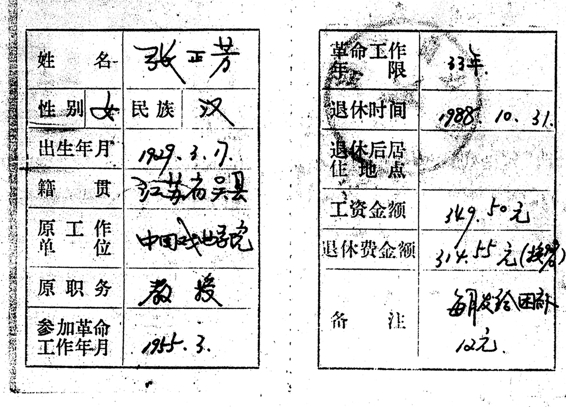
In October 1988, Zhang Zhengfang's retirement certificate.
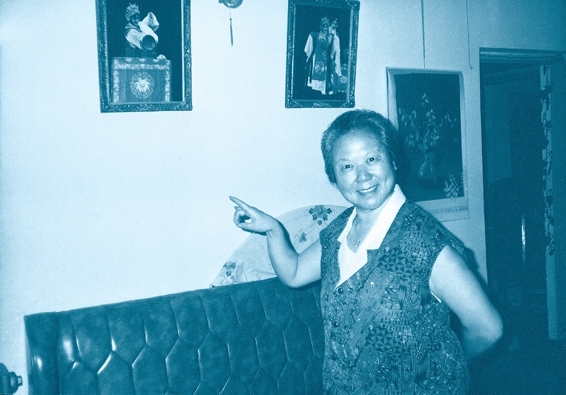
Life photos in 1993, taken at home in Beijing.
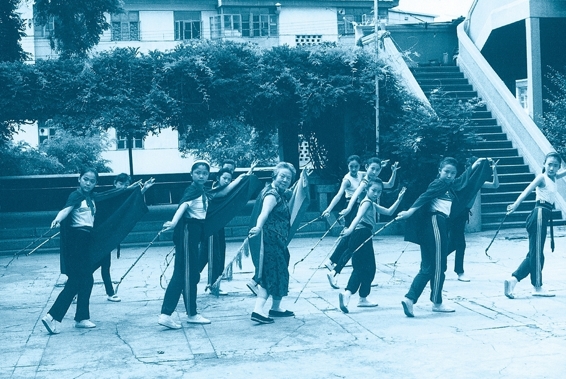
In 1991, Zhang Zhengfang taught "Fanjiang Pass" at Dalian Art School.
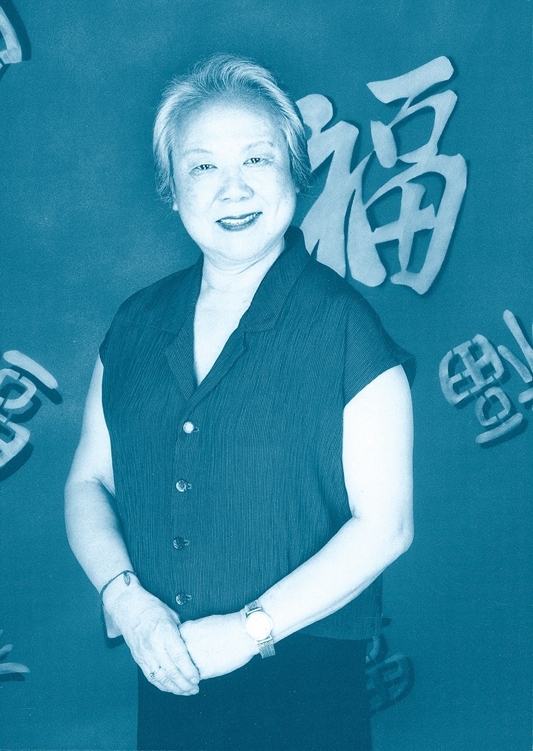
Photos of Zhang Zhengfang's life at the age of 72, taken in Jiamusi.
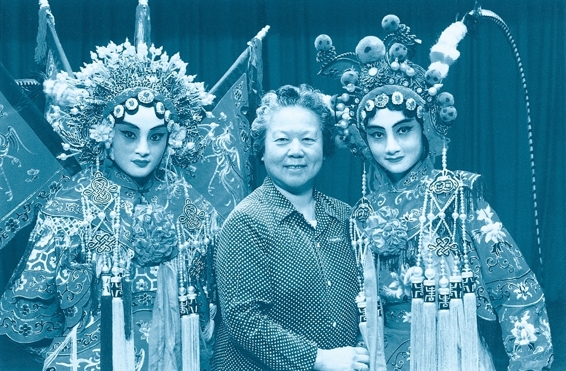
In 1992, Zhang Zhengfang took a group photo with teachers and students after the performance of "Fanjiangguan" taught by Chongqing Art School. From left: Jiang Qinqin (decorated as Fan Lihua), Zhang Zhengfang, Zhou Li (decorated as Xue Jinlian).
Since 1989, Zhang Zhengfang has taught "Fanjiang Pass", "Hundred Flowers Presenting the Sword" and "Matchmaker" at the Dalian Art School; at the Chongqing Art School teaching "Hanging Paintings", "Hundred Flowers Presenting the Sword", "Fanjiang Pass" and "Fanjiang Praise" ; taught "Hanging Paintings", "Fanjiang Pass", "Hundred Flowers Presenting Sword" and "Exploring Jade Bracelets" in Tianjin Peking Opera Troupe; taught "Hanging Paintings" and "Hundred Flowers Presenting Swords" in Shanghai Opera Troupe; "; taught "Hundred Flowers Presenting the Sword" at the Peking Opera Troupe of Jiangsu Province, and "Hanging Paintings" at the Peking Opera Troupe of Fujian Province... In addition, countless people have been invited by "disciples and grandchildren" to teach opera.She roughly estimated that there are probably more than 100 students taught in Chinese opera schools; there are more than 200 students in various parts of the country.
Zhang Zhengfang said that different students have different foundations, talents and personalities.Therefore, the versions, methods and emphases of the repertoire she teaches are also different.She never sticks to the rules in teaching, and is flexible according to the different characteristics of the students and the different occasions of the play.One of her fancier students once mentioned that when she first learned "Matchmaker", she started with "Called Zhang Sheng".Due to the short rehearsal time for this part of the play and the performance, teacher Zhang Zhengfang asked her not to wear the traditional "matchmaker" water sleeves during the performance, but to change into a narrow and short jacket; Instead, use a handkerchief.Teacher Zhang told her that there is no need to use the chessboard in this Xipi Liushui figure. If the singing and figure are not pure, if the water sleeves and the chessboard are used rashly, not only will it be impossible to perform a normal performance, but it will become a burden. .Therefore, in order to better express the characters and show their level, Mr. Zhang asked the students to change their costumes appropriately.
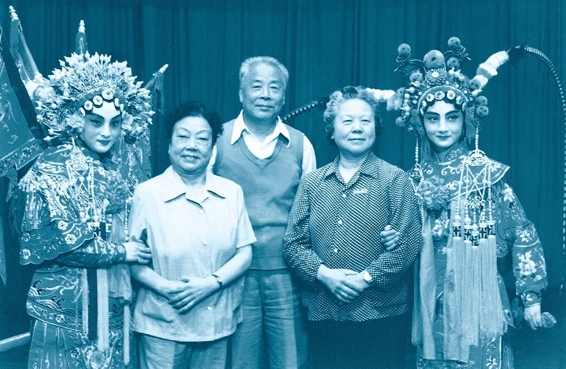
Jiang Qinqin (first from left), Zhou Li (fifth from left) took a group photo with teachers and leaders after the performance, Li Huimin (second from left), Director Zhang of the Cultural Affairs Bureau (third from left), and Zhang Zhengfang (fourth from left).
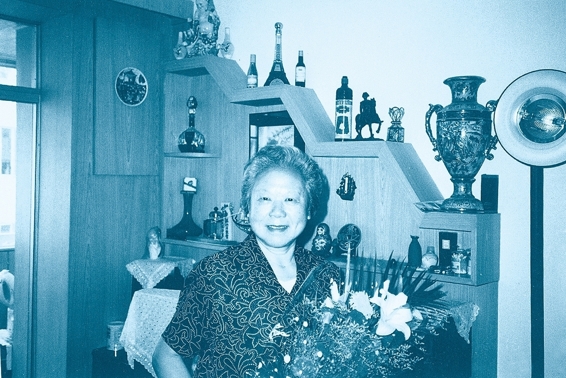
Life photos in 1998, taken in Dalian.
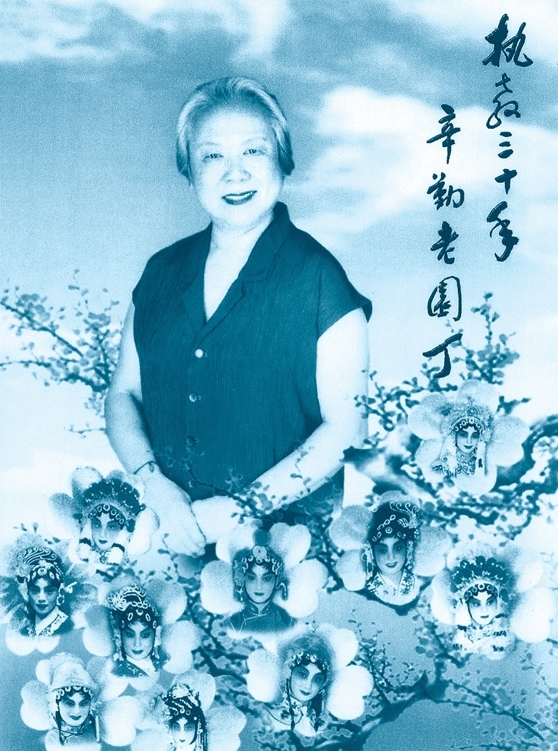
Commemorating Zhang Zhengfang's 30 years of teaching (photographed in 2001).
For this teaching method of adapting measures to local conditions and teaching students in accordance with their aptitude, Zhang Zhengfang summed it up in seven words-everything starts from the characters.This not only means that when performing, the form should serve the content of "expressing characters", but also an open and inclusive artistic spirit.This is also inseparable from the eclectic and open Shanghai style culture that Zhang Zhengfang accepted in his childhood. Just as the Shanghai Opera School did everything possible to keep the tricks of the actors who came to Shanghai. Inclusiveness, absorbing the strengths of all companies, rather than favoring one another.Zhang Zhengfang, who was in her formative years, was deeply influenced by Shanghai style culture, and she developed an open view of art. Twenty years later, in the 1960s, she came into contact with Xun Huisheng. Xun Huisheng's idea of breaking stereotypes and "starting from the characters" resonated with the Shanghai style culture she accepted when she was a child, and became the soul of Zhang Zhengfang's Peking Opera art.Since then, she has practiced herself, taught by precept and example, and passed on this inclusive and open view of art.
Beginning in 1997, Zhang Zhengfang was re-employed by the Chinese Opera School successively to teach postgraduate classes, teaching Zhao Xiujun, Deng Min, Zhang Jing and other new generation of outstanding actors; in 1998, he was re-employed by the High School Attached to the Chinese Opera School to teach Pan Jiehua, Xiang Xing, etc. Little "Matchmaker", from 2000 to 2002, was re-appointed by the Education Department of the Chinese Theater School to teach "Hanging Paintings" and "Matchmaker" and other dramas.
After more than 10 years of passing on the art like a marquee across the country, it was not until 2002 that Zhang Zhengfang really "retired" and "didn't travel far."However, as a lover of Peking opera, she has not been idle. She spends a fixed amount of time every week to voluntarily preach to young opera lovers.
Although he is over 80 years old, the word "sloppy" has probably never appeared in Zhang Zhengfang's life dictionary. In 2012, at the age of 83, when she instructed her students to complete the difficult movements in "Hanging Paintings", she still insisted on climbing on a chair to demonstrate in person.Just like at the Shanghai Opera School, Mr. Liang Lianzhu walked swiftly to demonstrate the round field...Teaching opera is not only the teaching and learning from the teacher to the students, but also the all-round interaction between teachers and students, such as movements, eyes, and dialogues, as well as a whole A spiritual inheritance.
She said: "Although I am over eighty years old, I am still willing to contribute what I have learned to the art of Peking Opera that I have pursued all my life."
In 2014, in order to pass on the "Double Thoughts" that Mr. Zhu Chuanming rehearsed for her and Gu Zhengqiu, she spent half a year, speaking and demonstrating for Zhang Hui and Chen Juanjuan, two young actors of the Northern Kunqu Opera Theater. .At this time, she was already suffering from illness.From the inheritance of this play, it can be seen that Zhang Zhengfang is passionate about teaching opera, and is as meticulous and serious as few others.
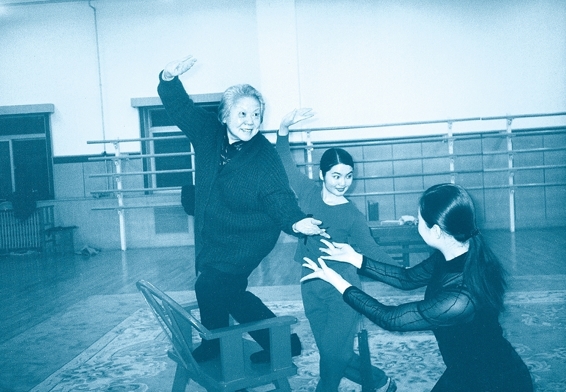
In January 2002, Zhang Zhengfang, who was more than seventy years old, was still on the chair to demonstrate the difficult figure when teaching Yan Meina's "Hanging Paintings"
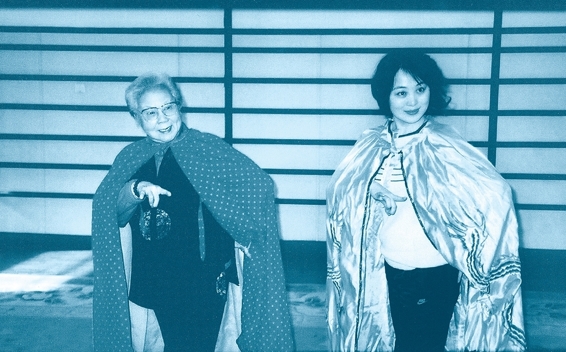
In 2008, Zhang Zhengfang was teaching at the Middle School Attached to the Chinese Opera School, and Liu Hua was the student on the right.
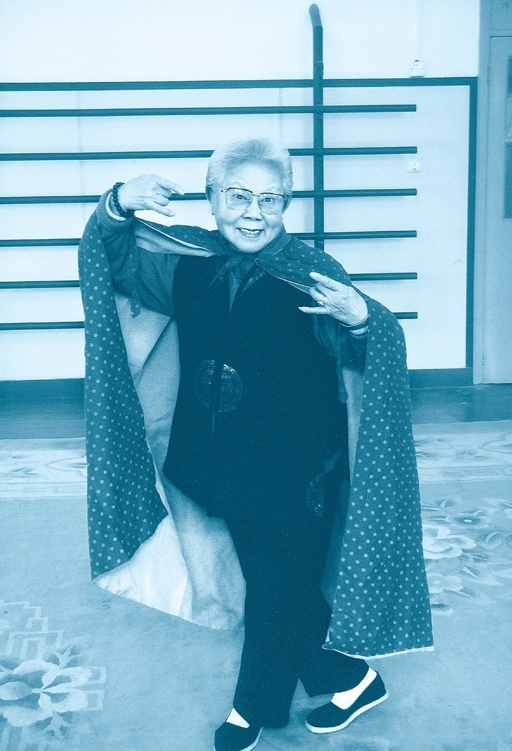
In 2009, Zhang Zhengfang was teaching the play "Hanging Paintings" by Liu Hua.
This "Shuang Si Fan" was created by teacher Zhu Chuanming on the basis of Kunqu Opera "Si Fan". In 1941, Gu Zhengqiu and Zhang Zhengfang collaborated and performed it on the stage at the Shanghai Golden Theater, which shocked Shanghai.In the play, the two dan actors are facing each other and playing the role of the little nun Se Kong at the same time. They all sing the same, and their bodies are exactly "mirror mirror".In addition, the eighteen arhats involved in the "Counting Arhats" in the play are also played by real people, with vivid images, often winning a lot of applause.
Although the play is beautiful, it is really difficult to practice.The most difficult thing is to find them all.
The time when Zhang Zhengfang rehearsed the play for the two young actors was the hottest day of the year.Her legs and feet are inconvenient, and she cannot go to the rehearsal hall of the theater every day, so she can only let the two actors come to practice at home.The room was small, and Zhang Zhengfang almost removed all the furniture.When she finished singing and practicing her posture, she would ask her students to support her and demonstrate in person, eyes, gestures, posture...not letting go of any details.In order to make the two people "aligned", she even tried her best, such as using "words" or "cavity" to find the "alignment" of movements; The orientation and other details are all neat and uniform, thereby increasing the overall sense of "tidyness"... For a whole summer, Zhang Zhengfang even got sick several times in the middle due to overwork.But the hard work finally paid off, and in the fall of 2014, "Double Thoughts" was successfully staged at the Mei Lanfang Grand Theater in Beijing.
Her student Zhang Hui said: "Mr. Zhu Chuanming spent his time creating "Double Thinking" in order to give students more opportunities to practice on stage; Zhang Zhengfang has never forgotten this teacher's kindness for more than 70 years, so he tried every means Let this play be passed on. The seniors love and support the younger generations, and the younger generations are grateful and miss the seniors. The experience of learning operas in the past few months has not only made us feel the artistic value of the play itself, but also wrapped in a unique teacher-student relationship. , the emotional value behind it is more meaningful.”
As a traditional art, Peking Opera pays attention to oral instruction.The inheritance of this kind of art from generation to generation, no matter in the narrow sense or in the broad sense, is actually the same as the "secret" of the successful performance of "Shuang Si Fan", and it is all for "finding the same".
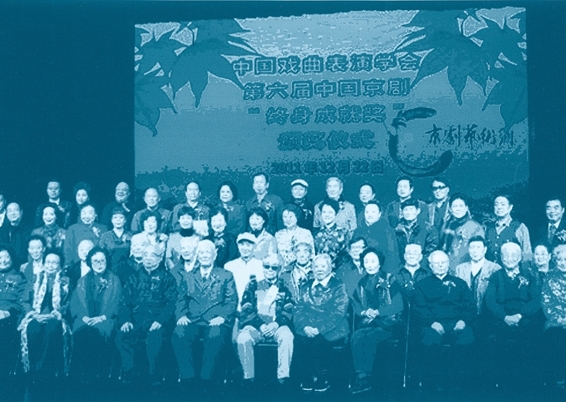
On December 22, 2011, Zhang Zhengfang took a group photo at the Lifetime Achievement Award Ceremony. Zhang Zhengfang is the fifth from the right in the front row.
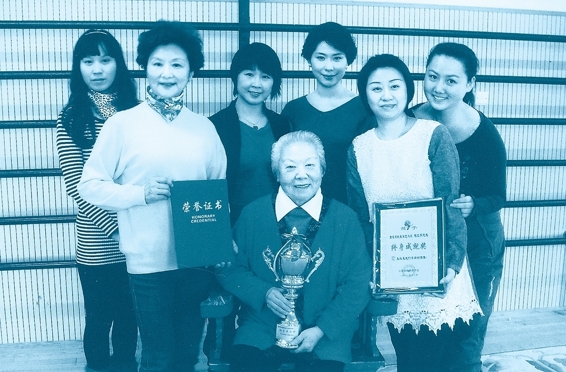
After receiving the Lifetime Achievement Award, on February 16, 2012, Zhang Zhengfang called the students to guide them in "Hanging Paintings" and took a group photo with the students.
——The "finding" of art, whether it is the original taste, or inheritance and innovation; whether it is a teacher who is over 80 years old and has won a lifetime achievement award, climbs up on a chair to demonstrate, preaches to the ancestors, or rehearses, discusses, Correction, investing time and effort together, and recreating operas together, are all equally moving and become unforgettable memories in life.
——The "alignment" of life allows the spirit of art and the pursuit of life to be subtly passed on between teachers and students, and the process itself is a more precious "intangible" heritage.Zhang Zhengfang had to be strong when she was young. What she learned from her teacher was not only plays such as "Yang Paifeng" and "Shuang Si Fan", but also the spirit of "the humble are the smartest" and "the relentless pursuit of a better life in youth". It has also become an inexhaustible upward driving force in her rough life.She is known as "Living Paifeng", and she was praised for playing Princess Baihua. Her "Double Thinking" was remembered by old audiences for decades. In the end, it was not only because of her good acting skills, but also because of her understanding of characters. The accurate grasp is because the characters and plays are embedded in her heart, and she has also entered the soul of the art of Peking Opera.Decades later, her students are not only learning a few classic repertoires. In the process of learning to shape characters with eyes, gestures, footsteps, libretto, etc., the students not only have to work with Zhang Zhengfang, an old predecessor, in art To "find the same level" on the level, to practice and experience again and again, to question one's own heart, and to test the loyalty to art, and this process is undoubtedly the "moisturizing and silent" flow and inheritance of cultural character.
Drama is like life, and life is like drama.Nearly a century later, the curtain opened, and the people standing on the stage had already been replaced by Zhang Zhengfang’s disciples and disciples; but no matter how the stage changed, wouldn’t those standing on the stage be the same Zhang Zhengfang, and the Peking Opera master? Are there "Zhang Zhengfangs" one after another in history?
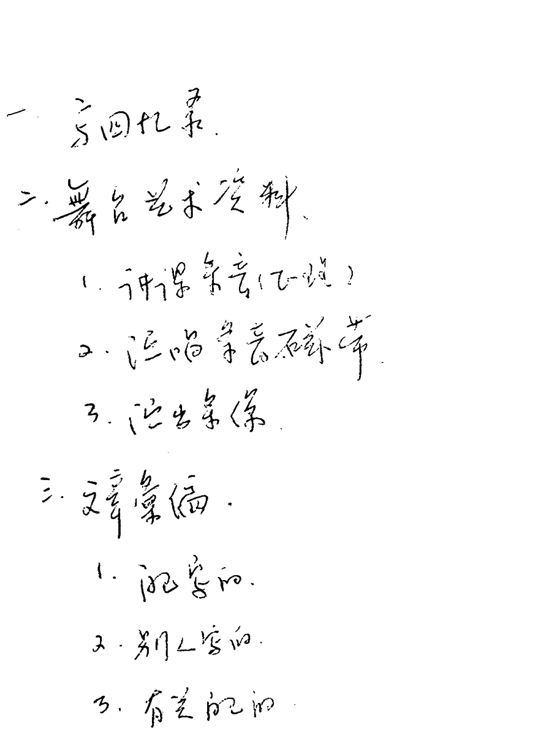
In 1985, Mr. Xun Huisheng performed in commemoration of the 85th anniversary of his birth. After watching "Huo Xiaoyu" performed by Zhang Zhengfang, Qixin suggested that Zhang Zhengfang write and sort out his life materials, including memoirs, stage art materials and article compilations.

In October 1988, Zhang Zhengfang's retirement certificate.

Life photos in 1993, taken at home in Beijing.

In 1991, Zhang Zhengfang taught "Fanjiang Pass" at Dalian Art School.

Photos of Zhang Zhengfang's life at the age of 72, taken in Jiamusi.

In 1992, Zhang Zhengfang took a group photo with teachers and students after the performance of "Fanjiangguan" taught by Chongqing Art School. From left: Jiang Qinqin (decorated as Fan Lihua), Zhang Zhengfang, Zhou Li (decorated as Xue Jinlian).

Jiang Qinqin (first from left), Zhou Li (fifth from left) took a group photo with teachers and leaders after the performance, Li Huimin (second from left), Director Zhang of the Cultural Affairs Bureau (third from left), and Zhang Zhengfang (fourth from left).

Life photos in 1998, taken in Dalian.

Commemorating Zhang Zhengfang's 30 years of teaching (photographed in 2001).

In January 2002, Zhang Zhengfang, who was more than seventy years old, was still on the chair to demonstrate the difficult figure when teaching Yan Meina's "Hanging Paintings"

In 2008, Zhang Zhengfang was teaching at the Middle School Attached to the Chinese Opera School, and Liu Hua was the student on the right.

In 2009, Zhang Zhengfang was teaching the play "Hanging Paintings" by Liu Hua.

On December 22, 2011, Zhang Zhengfang took a group photo at the Lifetime Achievement Award Ceremony. Zhang Zhengfang is the fifth from the right in the front row.

After receiving the Lifetime Achievement Award, on February 16, 2012, Zhang Zhengfang called the students to guide them in "Hanging Paintings" and took a group photo with the students.

In 1985, Mr. Xun Huisheng performed in commemoration of the 85th anniversary of his birth. After watching "Huo Xiaoyu" performed by Zhang Zhengfang, Qixin suggested that Zhang Zhengfang write and sort out his life materials, including memoirs, stage art materials and article compilations.
